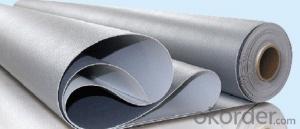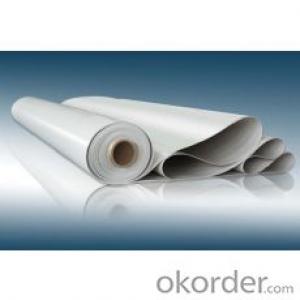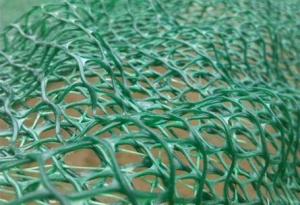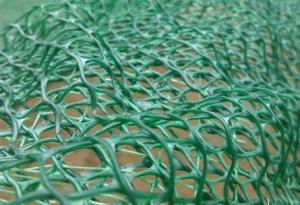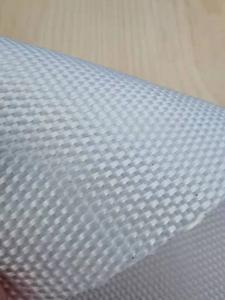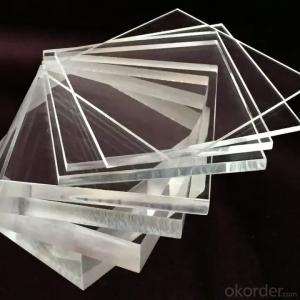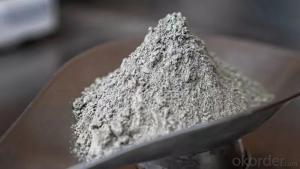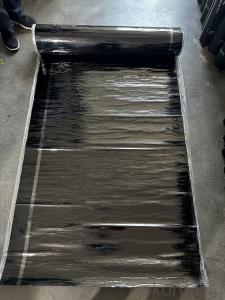Thermoplastic Polyolefin (TPO)Roofing Membrane for Roofing Industry
- Loading Port:
- Qingdao
- Payment Terms:
- TT or LC
- Min Order Qty:
- 20000 m²
- Supply Capability:
- 600000 m²/month
OKorder Service Pledge
OKorder Financial Service
You Might Also Like
Product features of TPO Waterproof Membrane for Roofing Market:
1.high reflectivity,anti-ultraviolet radiation,do not need to be protection,energy saving and environmental protection.
2.long-term weathering resistance,resistance to ultravoilet radiation and heat aging,density is small.
3..high elasticity,high strength,high elongation,good suppleness.
4.effectively resist harmful chemicals,industrial pollutants erosion,wear resistance,resistance to puncture.
5.with automatic quench.
Features of Thermoplastic Polyolefin (TPO)Roofing Membrane for Roofing Industry:
- Easy installation with good system integrity, need few accessories
- High tensile and tear strength, puncture resistance
- No plasticizer, heat aging and UV resistance, durable
- Hot-air welding, rapid welding speed, high peel strength (two times of PVC)
-No chlorine, 100% recyclable, environment friendly
- Durable hot-air welding performance and convenient maintainance
- Smooth surface, unfading and stain resistance
Applications of Thermoplastic Polyolefin (TPO)Roofing Membrane for Roofing Industry:
- Roof construction & steel structure of both industrial and civil engineering
- Underground engineering, such as subways, tunnels, air Raid shelter, etc.
- Sewage treatment, dam, reservoir and basement, grain storehouse, etc."
Technical Parameters of Thermoplastic Polyolefin (TPO)Roofing Membrane for Roofing Industry:
No. | Item | Index | |||
1 | mm≥ thickness of resin layer above inermediate tire mm ≥ | - | - | 0.4 | |
2 | tensile property | N/cm ≥ maximum tensile force N/cm ≥ | - | 200 | 250 |
MPa ≥ tensile Strength MPa ≥ | 12.0 | - | - | ||
≥ elongation at maximun tensile force% ≥ | - | - | 15 | ||
% ≥ elongation at fracture % ≥ | 500 | 250 | - | ||
3 | size change rate under heat treatment %≤ | 2.0 | 1.0 | 0.5 | |
4 | flexibility at low temperature | no crack at -40°c | |||
5 | unpermeability | 0.3Mpa,2h waterproof | |||
FRQ:
What is your main market?
Our Tpo Roofing Membrane with Superior Raw Material for Roofing Market sells very well in USA, United Kingdom, Austrilia, Canada, Japan, Pakistan, etc.
What is your advantage for Tpo Roofing Membrane?
With the most advanced production line, our good quality is based on superior material imported from America. We have different color available and could produce any color you want.
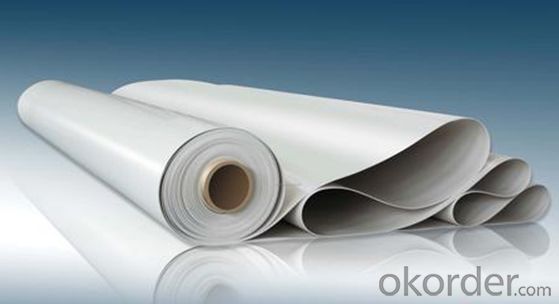
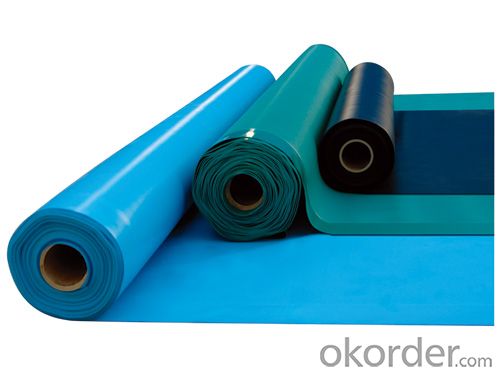
- Q:Can a waterproofing membrane be used on precast insulation surfaces?
- Yes, a waterproofing membrane can be used on precast insulation surfaces. A waterproofing membrane is designed to provide a protective barrier against water infiltration, and it can be applied to a variety of surfaces, including precast insulation. The membrane helps to prevent water from seeping into the insulation, which can cause damage and reduce its effectiveness. By applying a waterproofing membrane to precast insulation surfaces, you can ensure that the insulation remains dry and maintains its thermal properties over time.
- Q:Can a waterproofing membrane be used for walkways or pedestrian bridges?
- Yes, a waterproofing membrane can be used for walkways or pedestrian bridges. Waterproofing membranes are designed to create a barrier that prevents water from seeping into the structure and causing damage. By applying a waterproofing membrane to the surface of a walkway or pedestrian bridge, it can protect the underlying structure from water infiltration, thus increasing its durability and lifespan. This is especially important in areas prone to heavy rainfall or where the walkway or bridge is exposed to water sources such as rivers or lakes. Additionally, waterproofing membranes can also provide additional benefits such as improving slip resistance and protecting against chemicals or pollutants.
- Q:Does a waterproofing membrane prevent mold and mildew growth?
- Yes, a waterproofing membrane can help prevent mold and mildew growth by creating a barrier that prevents moisture from seeping into walls, floors, or other surfaces. By keeping the area dry, it reduces the conditions necessary for mold and mildew to thrive. However, it is important to note that a waterproofing membrane alone may not completely eliminate mold and mildew, as proper ventilation and maintenance are also crucial in preventing their growth.
- Q:Can a waterproofing membrane be used on elevator shafts?
- Yes, a waterproofing membrane can be used on elevator shafts. Elevator shafts are vulnerable to water infiltration, and using a waterproofing membrane can help prevent water damage and leakage into the shaft.
- Q:Can a waterproofing membrane be used for theaters or concert halls?
- Theaters and concert halls can benefit greatly from the use of waterproofing membranes. These membranes are commonly employed in construction projects to safeguard buildings against water damage by preventing water infiltration. They are applied to various surfaces, including walls, floors, and roofs, creating a barrier that stops water from seeping through. In the case of theaters and concert halls, where the protection of the building structure and equipment is of utmost importance, waterproofing membranes can be extremely advantageous. They play a crucial role in preventing water damage to delicate equipment like audiovisual systems, lighting fixtures, and musical instruments. Furthermore, these membranes ensure a dry and comfortable environment for both performers and audience members by preventing water leakage and moisture buildup. In conclusion, the use of a waterproofing membrane in theaters or concert halls guarantees the longevity and functionality of the building, creating a safe and enjoyable experience for all involved.
- Q:Can a waterproofing membrane be used for foundation walls?
- Yes, a waterproofing membrane can be used for foundation walls. Waterproofing membranes are specifically designed to prevent water penetration and provide protection against moisture for various structures, including foundation walls. These membranes are typically made from durable materials such as rubberized asphalt or synthetic polymers that create a barrier against water. They are applied directly to the exterior surface of the foundation walls to prevent water infiltration and potential damage. Waterproofing membranes help to maintain the structural integrity of foundation walls by keeping them dry and free from water-related issues such as dampness, mold, and deterioration. By using a waterproofing membrane, homeowners and builders can ensure long-lasting protection for their foundation walls against water intrusion.
- Q:Can a waterproofing membrane be used on roofs?
- Yes, a waterproofing membrane can be used on roofs. Waterproofing membranes are commonly used on flat or low-slope roofs to provide an additional layer of protection against water infiltration. These membranes are typically made from synthetic materials such as modified bitumen, EPDM (ethylene propylene diene monomer), PVC (polyvinyl chloride), or TPO (thermoplastic olefin). They are designed to be durable, flexible, and resistant to UV rays, weathering, and ponding water. When properly installed, a waterproofing membrane can effectively prevent water from seeping into the underlying roof structure, protecting the building from leaks and water damage.
- Q:Can a waterproofing membrane reduce noise transmission?
- Yes, a waterproofing membrane can reduce noise transmission.
- Q:Can a waterproofing membrane be used for a roof?
- Yes, a waterproofing membrane can be used for a roof. Waterproofing membranes are specifically designed to provide a barrier against water penetration, making them an ideal choice for protecting roofs from leaks and water damage. They are durable, flexible, and can be applied to various types of roofs, including flat and sloped surfaces.
- Q:Can a waterproofing membrane be used on brick surfaces?
- Yes, a waterproofing membrane can be used on brick surfaces. The membrane can be applied to protect the brick from moisture, water infiltration, and potential damage caused by water absorption.
1. Manufacturer Overview |
|
|---|---|
| Location | |
| Year Established | |
| Annual Output Value | |
| Main Markets | |
| Company Certifications | |
2. Manufacturer Certificates |
|
|---|---|
| a) Certification Name | |
| Range | |
| Reference | |
| Validity Period | |
3. Manufacturer Capability |
|
|---|---|
| a)Trade Capacity | |
| Nearest Port | |
| Export Percentage | |
| No.of Employees in Trade Department | |
| Language Spoken: | |
| b)Factory Information | |
| Factory Size: | |
| No. of Production Lines | |
| Contract Manufacturing | |
| Product Price Range | |
Send your message to us
Thermoplastic Polyolefin (TPO)Roofing Membrane for Roofing Industry
- Loading Port:
- Qingdao
- Payment Terms:
- TT or LC
- Min Order Qty:
- 20000 m²
- Supply Capability:
- 600000 m²/month
OKorder Service Pledge
OKorder Financial Service
Similar products
New products
Hot products
Hot Searches
Related keywords
